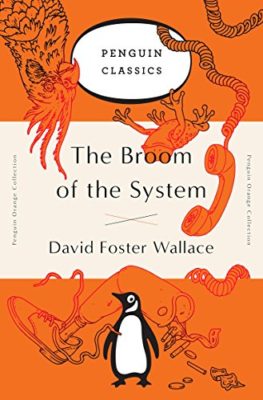 Lenore Beadsman’s life becomes very complicated all of a sudden when her great-grandmother and twenty-five other people vanish from a nursing home, her cockatiel starts talking without pause, and the telephones at the company she works for go crazy. While looking for her missing great-grandmother, she has to confront other members of her family and her family’s history, and acknowledge the lack of control she has over her own life.
Lenore Beadsman’s life becomes very complicated all of a sudden when her great-grandmother and twenty-five other people vanish from a nursing home, her cockatiel starts talking without pause, and the telephones at the company she works for go crazy. While looking for her missing great-grandmother, she has to confront other members of her family and her family’s history, and acknowledge the lack of control she has over her own life.
Lenore is sort of a blank canvas that others project their needs on, for instance, her great-grandmother who “indoctrinates” her, her much older boyfriend who clings to her and wants to own her, or the wealthy businessman that becomes obsessed with her after meeting her once, and who wants to consume her (in a literal way). All this means that she is used by others as they see fit or need it, which makes for a bleak existence. The problem is that it is nonetheless hard to root for her because her passivity and lack of an own motivation leads to a nonexistent personality. She is not a captivating protagonist and only elicits a very vague feeling of sympathy, and then only because of her situation and not because of herself.
The other characters are mostly cartoonish, but so is the setting, and it all fits exceptionally well together in vivid and amusing fashion. The outcome is nonetheless a hollow kind of entertainment, because this is in general not a book that manages to engage its reader emotionally at all. It is largely a literary exercise that is fun most of the time, but sometimes also a chore, because for every joke that lands perfectly, there is one that falls flat completely, and for every idea that delights with wittiness and ingenuity, there is one that is just juvenile or self-indulgent. This uneven quality of the book and the immature approach to some topics can probably be attributed to the fact that this was Wallace’s debut that he wrote when he was just in his early twenties, but because it is such a fine line he is trying to walk, missteps seem more glaring than they would normally be. The book is also incredibly wordy in that people talk and talk and talk, and there is only seldom a point to it all, which becomes more and more frustrating over its course. The story would have greatly benefitted from being whittled down at least some.
I also want to mention the ending which is really no ending at all and happens very abruptly. On one hand, I like it because I can’t think of a more fitting (non-)conclusion to the story, but on the other hand, it seems lazy and is kind of infuriating. Still, in the end I liked the book more than I did not, and it is fascinating in its own off-kilter way in any case.
CBR12 Bingo: Orange
